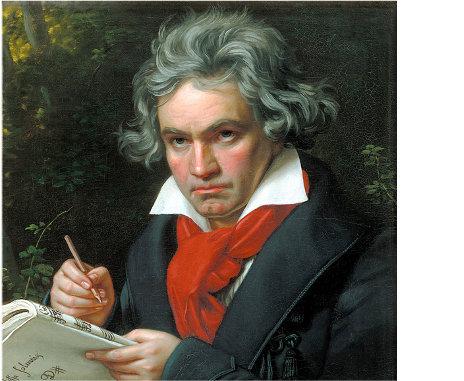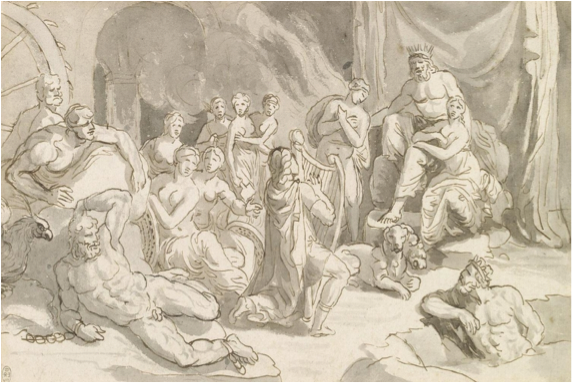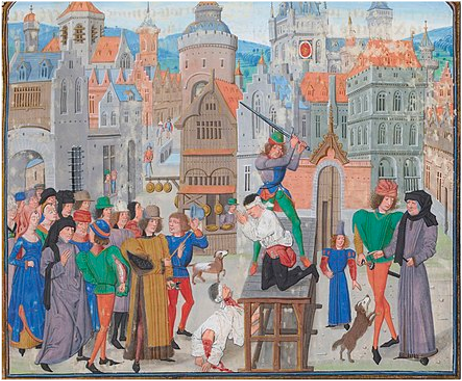


Beethoven is widely recognised as one of the greatest composers of all time despite his deteriorating deafness which had began in his late 20's. He left a legendary amount of influential music masterpieces covering many classical music forms.
Beethoven's father, a mediocre court singer, was his first music instructor but his teaching methods were characterised by extreme austerity and brutality, which impacted Beethoven for the rest of his life. It is rumoured that young Beethoven was beat by his father for each mistake or even hesitation and that he was deprived of sleep for extra hours of practice. Beethoven's musical talent became obvious at an early age and his father, trying to imitate Mozart's methods for gaining early recognition, organised his son's first public recital with the title "Little Son of 6 Years", receiving however not as much success as he had expected.
At school, Beethoven was an average student, struggling with spelling and math. Some biographers believe he was dyslexic. At the age of 10, Beethoven quit school to devote himself in music by becoming a court organist, and at the age of 12 he published his first composition. In his early 20s, Beethoven moved to Vienna, Europe's capital of music and culture at that time, where he established himself as a virtuoso pianist and earned increasing awareness for his compositions.
Around his late 20's, Beethoven started going deaf but desperately tried to conceal this until 2-3 years later, when he revealed his condition to a close friend in a heart-wrenching letter. His deafness was further impeded by a severe form of tinnitus which had initially led him to suicidal thoughts but later increased his determination to continue living for and through his art. He also had a general ill health.
Despite his musical genius, Beethoven was lonely, short-tempered, absent-minded and suspicious, while he was in a conflict with many people around him. In a letter to his brothers, he had once said "O you men who think or say that I am malevolent, stubborn or misanthropic, how greatly do you wrong me. You do not know the secret cause which makes me seem that way to you and I would have ended my life — it was only my art that held me back. Ah, it seemed impossible to leave the world until I had brought forth all that I felt was within me."
Beethoven never married or had children, partly due to his deafness or shyness or his awkward looks, but had fallen in love once with a married woman to whom he had written a beautiful love letter which was never sent. Another time, he had fallen in love with one of his students to whom he had proposed marriage, which was forbidden however by her father.
Beethoven's compositions were groundbreaking: his music was longer, larger-scale, louder, "heavier", more exciting, with much more emotional and intellectual depth than any music before. His compositional process was very stochastic: every note, every phrase was the outcome of an intense thinking process.
Beethoven died from a liver disease when he was 57, but it has been recently discovered, through a DNA analysis of his hair and teeth, that he suffered from lead poisoning, an illness that left him in misery throughout his life.
"Moonlight sonata"

"Emperor concerto"
(Piano Concerto No 5 / Movement 2)

"Fate motif"
(Symphony No 5 / Movement 1)

"Pastoral symphony"
(Symphony No 6 / Movement 2)

"Pathétique"

"Orpheus and the Furies"
(Piano Concerto No 4 in G Major Op 58)

"Overture to Egmont"

"Heroic stories"
(Piano Concerto No 3)
